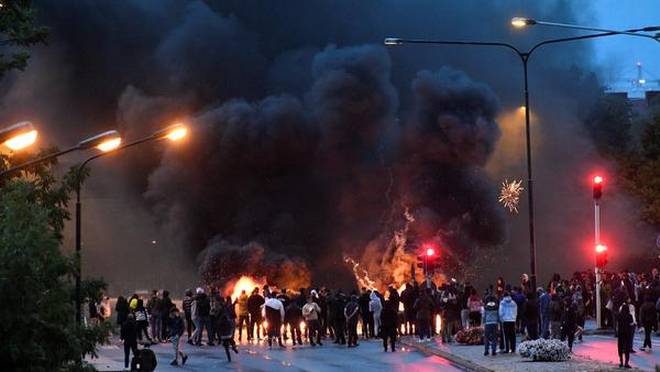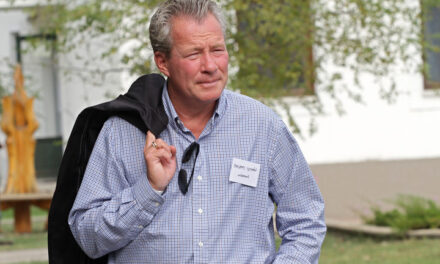The current and previous governments have done great harm to their own population by imposing an immigration policy that was never supported by the majority of Swedes. As a nation-state, Sweden would need a Hungarian scenario – a stable majority – to form a government with a national mindset, and this will not happen this time either. And due to demographic change, your chances also decrease with each election.
Swedes will go to the polls in a historic election on September 11. For the first time in their modern history, there is a viable alternative government that embraces true conservative and national values. This coalition consists of the liberal conservatives, the Christian Democrats and my own former party, the Sweden Democrats, a nationally minded, social conservative party. However, this coalition alone will not be able to obtain a majority, so it also relies on a centrist-liberal party. The other electoral block is made up of the Social Democrats currently in government, the Greens, a centrist-liberal party and the former communist party. According to the latest opinion polls, the race is very close, and the majority depends on only a few thousand, fluctuating votes in the surveys.
In Sweden, three issues dominate the public election debate: the war in Ukraine, energy prices and violent crime. While most analysts agree that the war favors the incumbent prime minister, the other two issues have become increasingly problematic for the Red government. In the last few years, the nuclear reactors in southern Sweden have been shut down one after the other due to the ultimatums of the Green Party. This has dramatically accelerated the power crisis - so much so that Sweden has now reopened an old oil-fired power plant, running it continuously for the first time in decades. Just two weeks before election day, the government again opened up to more nuclear energy - but the construction of new reactors is a very long process, so it seems that few voters interpret this as more than a cheap campaign trick that will not divide or multiply in the foreseeable future. Violent crimes are an even tougher nut to crack for the government. According to the latest survey by Ipsos, Swedes are third in the world from the developed world on a list showing how worried the population is about violent crime. Swedes are also more worried than South Africans, with only citizens of Mexico and Chile ahead of them - countries where they cannot enforce the law. It is worth noting that the Poles are the least worried, followed by the Hungarians and the Japanese. According to official EU statistics, the highest number of firearm murders per capita in the European Union are committed in Sweden, while the fewest are committed in Hungary and Poland.
In Sweden, there are shootings practically every day, often several times. Ten years ago, these were headlines, but nowadays the major newspapers usually do not devote more space to them than a short report. What makes violent crime problems so difficult for the current government to deal with is that they are directly linked to recent immigration. Acknowledging the cause of crime rates is tantamount to admitting that current and previous governments have done great harm to their own population by imposing an immigration policy that was never supported by the majority of Swedes. And if their challenger, the right-wing bloc, wins this election, it will be because of immigration policies and their consequences. After a long period of supporting ultra-liberal immigration laws, Sweden's traditional "right-wing"/liberal-conservative parties finally admitted they were wrong and did a U-turn in recent years. If Sweden is to see a real change of government after Sunday's election, it will be the first of many steps, from a conservative perspective, that it will have to take to have any chance of survival as a nation-state. And the clock is ticking. In each new election, a few hundred thousand newly immigrated citizens to Sweden can also cast their votes. However, four out of every five non-Western immigrants vote for a socialist or Islamist party. Therefore, for a truly national-minded right wing to gain and retain power, it is vitally important to deal with demographic change as soon as possible. This change not only undermines Sweden as a Swedish country, but also the chance that a non-liberal government can win re-election at any time.
Unfortunately, there is no realistic chance that a right-wing government will be formed after the elections without relying on the liberal party. And since, according to such a scenario, the liberal party would gain the role of kingmaker in the parliament, it could easily use it to its advantage, demanding many concessions from any government that wants its support. In other words, while Sweden as a nation-state would need a Hungarian scenario - a stable majority - to form a government with a national mindset, this will not happen this time either. And due to demographic change, your chances also decrease with each election. I hope that the result of this election will be the first of many steps to save Sweden, but if it doesn't happen, then at least the fate of former Sweden will be studied as an example for Hungary and the rest of Europe to avoid.
The author is a journalist, former member of the Swedish Parliament, speaker at EuCET
Source: Hungarian Nation
Photo: Reuters












